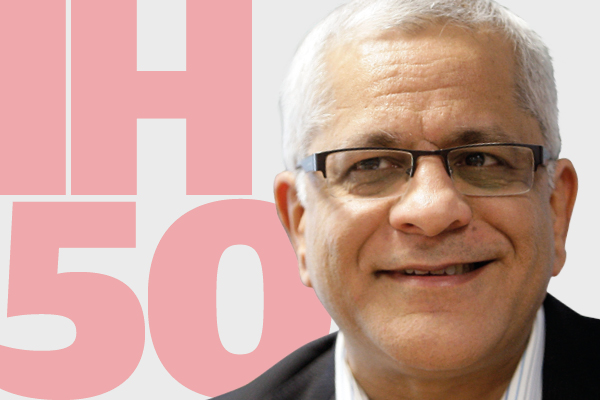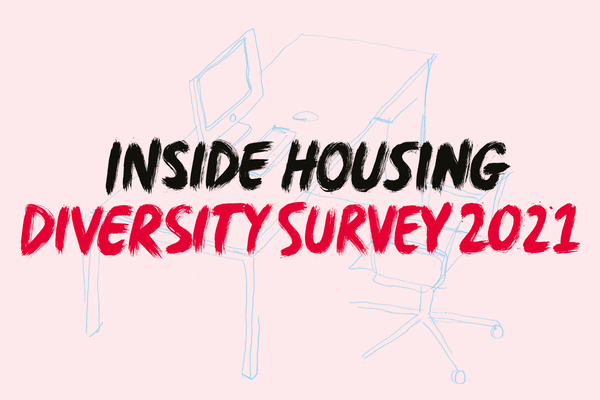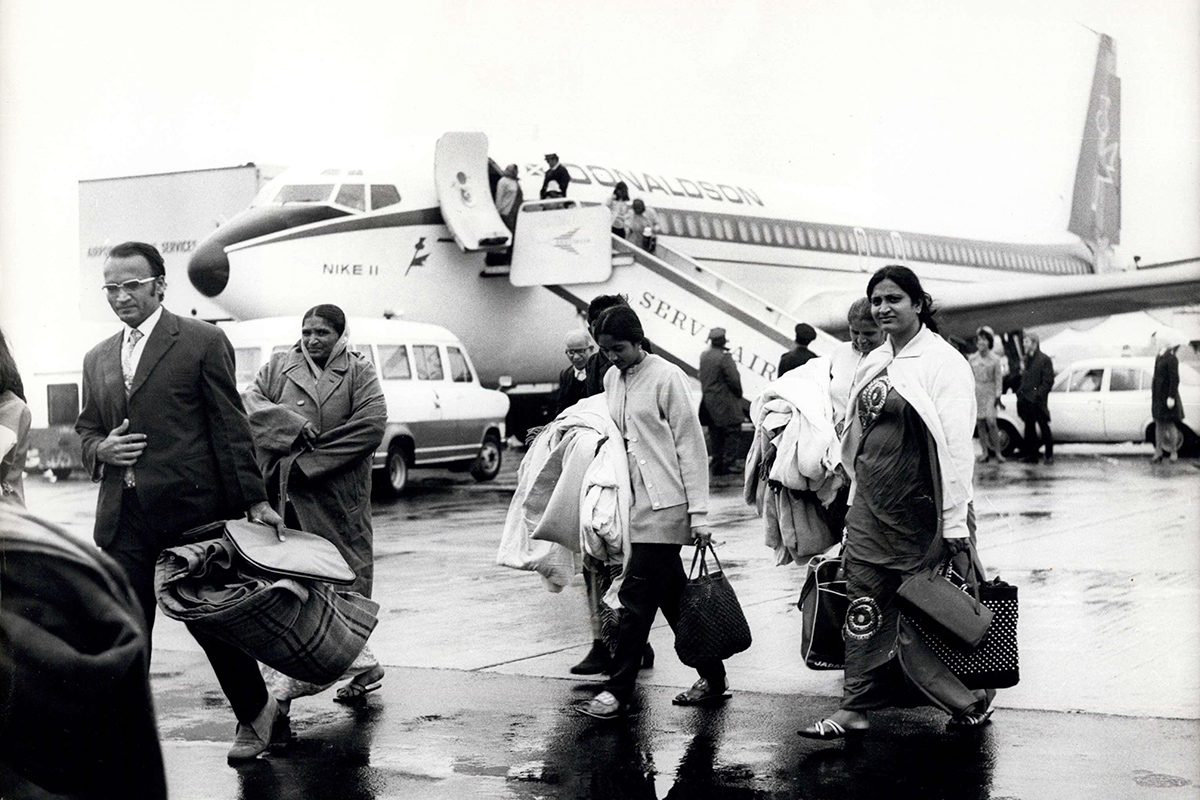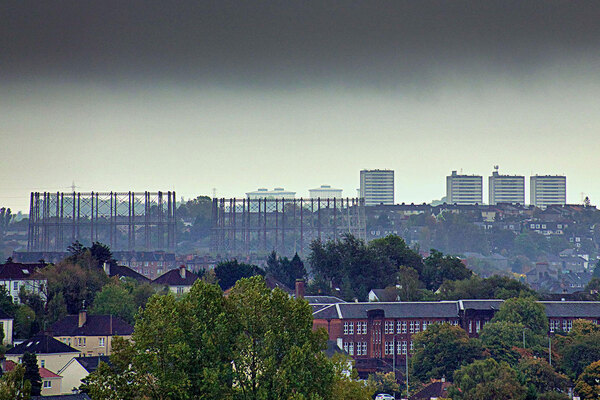‘We had to abandon everything’: the story of Chan Kataria and the flight of the Ugandan Asians
Fifty years ago, Chan Kataria’s family fled after Ugandan Asians were given 90 days to leave the country by dictator Idi Amin. Today, EMH’s chief executive opens up about his story and how the exodus helped shape modern Britain. Martin Hilditch reports. Photography by Fabio De Paola
Fifty years ago, the lives of around 70,000 Ugandan Asians changed almost overnight.
In August 1972, military dictator Idi Amin, who had gained power in a coup the previous year, ordered the expulsion of Uganda’s minority Asian population. He gave them just 90 days to leave the country and stripped them of almost all of their assets – each family was only allowed to take £55 and one suitcase per person. Some 28,000 held British passports and were granted entry to the UK by Edward Heath’s government.
Behind all of those figures lie individual stories of trauma.
Eleven-year-old Chan Kataria and his family were among those affected. The Katarias, who lived in the capital city Kampala, owned a successful textile business, but in an instant that world came to an end. “You had to abandon everything – cars, businesses, bank accounts, all that sort of stuff,” says Mr Kataria, who is now chief executive of housing association EMH.
In the run-up to the exodus, queues snaked outside the British Embassy, Mr Kataria recalls, as individuals rushed to verify their passports ahead of the deadline. The political situation encouraged the police and army “to be a bit more freelance in their approach”, Mr Kataria states. “They would stop cars and ask for money and that sort of stuff.”
It was a terrifying situation for the family. “There were no certainties at all,” he says. “I think most people felt lucky when they got through customs and onto the other side, because you heard stories about people that went missing. My eldest brother was quite political and he wrote an article in the Ugandan newspapers calling Idi Amin some kind of name which he didn’t like, and he was chucked in prison for a week. I remember him telling me that he wasn’t sure he would make it out.”
Relocation to the UK
A week before the family was due to leave the country, Mr Kataria’s father died from a heart attack brought on by the stress.
“It was too much for him,” Mr Kataria says. The grief-stricken family had little time to mourn properly as they were faced with “working through the practicalities” of moving to the UK. This proved an insurmountable hurdle for one of his brothers, who had not renewed his British passport and was rendered stateless as a result. He was never able to join the family in the UK, ending up in a United Nations refugee camp in Austria, before eventually settling in Sweden.
Today, Mr Kataria is a well-known figure in the housing sector as chief executive of 20,000-home housing association EMH Group.
We are meeting to mark the anniversary of the arrival of Ugandan Asians in the UK – the first evacuation flight landed 50 years ago this month – and to reflect on the contribution Ugandan Asians have made to the UK since. We also talk about Mr Kataria’s life and his family’s story in detail for the first time.
Appropriately, we meet in Bobby’s restaurant on Leicester’s golden mile, a legendary local destination founded by two other families forced out of Uganda in 1972.
After a brief spell in a resettlement camp in Somerset, Mr Kataria, his mother, two of his sisters and two of his brothers moved to Leicester because another of his sisters had moved there previously following her marriage. The city today is a far cry from the Leicester of 1972, which ran an active campaign to dissuade Ugandan Asians from migrating to the city.
The environment Mr Kataria encountered at school was often just as hostile. “Very racist terms were used all the time in schools,” he states. “Sometimes [it was] the teachers, sometimes students. Using the ‘N’ word and the ‘P’ word was quite common.” When Mr Kataria said that he knew a fellow Ugandan Asian student, he was moved down a set because the headmaster decided they should be separated.
The atmosphere outside of school was worse if anything, with the National Front active in the area.
“You would hear about skinhead attacks quite a lot,” he states. “They were quite common. So, in terms of racism, it was pretty violent.”
Mr Kataria’s mother – “an incredibly resilient person” – was adjusting to life as a single parent in 1970s Leicester, while “still mourning” the loss of her husband and the home in Uganda that she would never see again. It would be almost 20 years before Mr Kataria returned to Kampala – finding himself shocked by how the “vibrant city” he remembered had become “a mere shadow of what it was”, with potholes dotting the roads and
“the infrastructure, the businesses were kind of dying or dead”.
In Leicester, the family lived briefly with Mr Kataria’s sister and her family, before a stint in the private rented sector (“two buses away from school”) and then, after four years, into a council house.
The four-bedroom home was “the best home we had”, Mr Kataria recalls. And the stability perhaps provided the germ of his future career. “It certainly made me appreciate the good work social housing does and how it can help give people the platform to meet their potential,” he says.
The racism he encountered at school and in wider society continues to inform his approach to life as an adult.
“What you don’t want is for your kids, your family, others, to go through that. You do everything possible to make sure you use any influence you have in life to make sure others don’t have to go through it.”
Academically, Mr Kataria thrived and studied economics at university with the intention of becoming an accountant. But his formative experiences meant he quickly realised he wanted to do something else with his career.
“I wanted to do something with a social purpose,” he states. “And this job at the local authority came up, working with housing need and homeless people.”
After three years, he moved into his first leadership role as neighbourhood manager at St Andrews, a high-density, inner-city estate in Leicester – and he never looked back. “I kind of flew, because I really enjoyed making a difference.”
“Very racist terms were used all the time in schools. Sometimes [it was] the teachers, sometimes students. Using the ‘N’ word and ‘P’ word was quite common”
While Mr Kataria’s career might have taken off, his rise to the top is particularly notable because there are so few Black, Asian or ethnic minority people in the social housing sector who have had a similar career path.
“If you look at the number of [Black or Asian] chief executives within our sector, we should have had more people given our values, given that diversity appears in most of our mission statements,” he says. “The fact that it hasn’t felt like words have been translated into action in terms of people at a higher level I think is a real issue here.
“Ultimately, it comes down to one thing, which is that boards have not been focused on it. We have had this debate 20 years ago, 15 years ago, 10 years ago, about the lack of representation. I have to say that if boards and executive teams up and down the country were making targets in this area, then they would have to do things.”
The continued lack of progress in the sector has seen Mr Kataria’s own thinking shift in recent years, he tells Inside Housing.
“I wasn’t always a fan of greater regulation in terms of diversity,” he says. “I am really now coming to the view that if it doesn’t happen by virtue of the organisations themselves, then we need to make that happen.”
Today, Mr Kataria feels that there is a need for “some kind of external assessment of our performance on diversity”, rather than leaving associations “to their own devices”.
“It seems to me that everything else has been tried,” he states. “And we’re having the same conversations.”
Rooney Rule
There should also be more scrutiny of organisations and recruitment consultants placing people in high-level positions, he suggests, about why they are not recruiting Black and Asian people to the most senior roles. EMH has adopted the ‘Rooney Rule’ for senior appointments – guaranteeing that at least one applicant from an ethnic minority is shortlisted for every leadership role. The group also has a board lead for equality, diversity and inclusion, and has set up a Black and ethnic minority colleagues group.
Mr Kataria has been working on this agenda beyond the housing sector, too.
Last year, as part of the East Midlands Chamber of Commerce, EMH led on a paper looking at attitudes and approaches to diversity in the East Midlands. A survey of 341 East Midlands businesses found that almost 70% of businesses thought progressive approaches to equality, diversity and inclusion (EDI) would play a role in supporting the achievement of their business plans. Almost two-thirds thought having an engaged
approach to EDI could help create an inclusive environment and 42% thought it helped with staff retention.
“It’s a good, encouraging start,” Mr Kataria says, pointing also to events the Chamber has held to celebrate and promote diversity in business as helping to drive change and create a more inclusive environment.
The 50th anniversary of the expulsion of Ugandan Asians has also given Mr Kataria pause to reflect on the situation facing refugees arriving in the UK today. He flags with pride EMH’s work to house Afghan refugees last year – the organisation provided six homes with three-year support packages for Afghan refugees in 2021.
The situation faced by Afghan refugees resonated strongly with him, he states.
“It’s not just theoretical, you know what they’ve been through, you know what they’re going through,” he says. “And I’m really pleased that we at EMH have been able to do our small bit, still want to do more, working with local authorities to help house Afghan refugees.”
Certainly, the approach from the local authority has changed beyond all recognition in the past 50 years as immigration has helped shape the city.
Today, the council that once tried to dissuade Ugandan Asians from settling in its environs is holding events to mark the anniversary and celebrate the contribution they have made to the city’s success.
For Mr Kataria, the anniversary is a chance not only for personal reflection but also to tell a wider story.
“My first job in housing was on an inner-city estate – a pretty deprived estate with all the usual problems,” he says. “Look at it now. Somali people have settled there. It’s so vibrant. The schools have improved. Down the road you will see the Polish community and the impact they have had – [you’ll see] Polish and Cypriot shops and cafes.”
So how would Mr Kataria choose to sum up those 50 years now? “I think it’s a story about how immigration can be for the good, and how diversity really changes society for the better.”
Sign up to our Best of In-Depth newsletter
We have recently relaunched our weekly Long Read newsletter as Best of In-Depth. The idea is to bring you a shorter selection of the very best analysis and comment we are publishing each week.
Already have an account? Click here to manage your newsletters.














